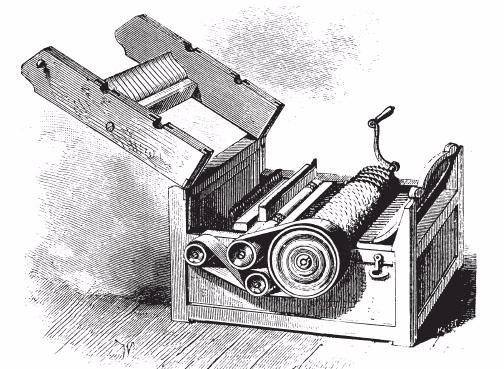On March 14, 1794, Eli Whitney received a patent for his cotton gin, proving that he was a brilliant inventor and engineer. It also marked the date that he set out to prove that his brilliance did not extend to the world of business.
As a child, Whitney built his own violin and even a working nail forge. As a teenager, he found employment as a blacksmith, which is a highly technical trade. Eventually, he grew dissatisfied with the life of a blacksmith, so he went to college a few years later to become a lawyer. After he graduated, he then went to work as a tutor. While working in Georgia, he turned his attention to the problem of cleaning the seeds out of cotton after it was picked.
Separating the seeds by hand took forever. To improve the efficiency of the process, Whitney invented a machine that forced the cotton fibers through a wire mesh using toothed wheels, forcing the seeds out in the process. He called it the cotton engine, or cotton gin for short. Overnight, cotton went from a just-barely-profitable crop to an incredibly profitable crop.
Then he made the mistake of trying to charge people 40% of the profits made with his machines. His potential customers were not impressed. So they built their own cotton gins copied from Whitney’s design. Whitney went broke trying unsuccessfully to sue them. Eventually, he decided to license his machine for a much more reasonable, though still high, price.

